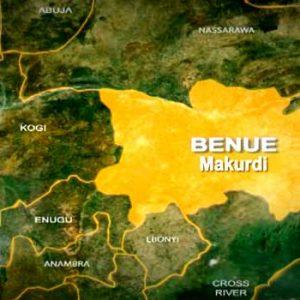As Nigeria begins to feel the real impact of President Bola Ahmed Tinubu’s bold economic reforms, from the steady drop in inflation to the gradual return of price stability across markets, some elements in the opposition camp seem more focused on stirring political tension than acknowledging the country’s progress.
In what many see as a calculated attempt to stay relevant in the national conversation, former Kaduna State Governor, Mallam Nasir El-Rufai, recently hosted former Vice President Atiku Abubakar. During the meeting, El-Rufai made the outrageous claim that President Tinubu is a “pretender” and is allegedly plotting to remain in power indefinitely. He went even further to compare him, rather absurdly, to Cameroon’s Paul Biya, who has ruled for over four decades and is again vying for the presidency for the 18th term.
Now, these kinds of politically motivated jabs might win applause in certain corners, but they do nothing to move the country forward. At a time when Nigeria is turning the page on years of economic uncertainty and beginning to witness real signs of recovery, such careless and baseless accusations only serve to poison public discourse.
Let’s be clear: President Tinubu’s legacy as a democrat is not up for debate. He has paid his dues, from the trenches of the pro-democracy movement in the 1990s to the policy battlegrounds as Lagos State Governor. To now accuse him without any shred of evidence of plotting to entrench himself in power is not only misleading, but also a complete distortion of both history and present-day reality.
First of all, there’s nothing legally or politically to suggest that Tinubu has any intention of staying in power beyond the constitutionally allowed two terms. Nigeria’s Constitution is very clear on presidential tenure, and any attempt to tamper with that would require an overwhelming, near-impossible level of support across the National Assembly and the states.
Compare that to the era of President Olusegun Obasanjo, when the third term agenda was not just whispered, it was aggressively pushed. Several former lawmakers from that period, including Senators and House of Representatives members, have publicly confirmed in interviews that they were offered large sums of money to support constitutional amendments that would have allowed Obasanjo to remain in power beyond 2007. It was a full-blown campaign, backed by state machinery, and only failed because Nigerians, especially within the National Assembly rose up in defence of democracy.
Notably, Asiwaju Bola Ahmed Tinubu as Governor of Lagos State was one of the most vocal opposition figures who resisted that anti-democratic move. He stood firm alongside other progressives to safeguard the Constitution and uphold term limits.
Ironically, El-Rufai was a serving Cabinet Minister in that same Obasanjo administration, yet he conveniently lost his voice when it mattered most. Is it not the height of hypocrisy that he now turns around to accuse Tinubu, a man who fought against tenure elongation of plotting a life presidency? It’s not just laughable; it’s a brazen attempt to rewrite history.
In contrast, not even the most cynical critics can point to a single move official or unofficial by President Tinubu indicating any such ambition. In fact, Tinubu hasn’t even finished his first term in office, talk less of plotting to be a “president for life.” To accuse a sitting president, barely two years into his tenure, of harbouring dictatorial intentions without a shred of evidence is not just misleading, it’s irresponsible and dangerous.
And let’s not forget the facts of Tinubu’s political journey. As a leading figure in the National Democratic Coalition (NADECO), he stood firmly against military rule. He risked his life and livelihood fighting for the restoration of democracy, the same democracy some now accuse him of trying to undermine. As Governor of Lagos, he took on the federal government over matters of fiscal federalism and state autonomy, long before it was fashionable to talk about restructuring.
Even as President, Tinubu has remained committed to the principles of democracy. His administration continues to respect the independence of the judiciary, the oversight role of the legislature, and the operations of a vibrant opposition. What he would not do, as he rightly stated in his address to NASS on Democracy Day, June 12, 2025, is that he would not help the opposition to organise themselves against him. These are not the signs of a man trying to hold on to power by force or manipulation.
That’s why El-Rufai’s comparison to Paul Biya doesn’t just miss the mark, it’s downright irresponsible. Nigeria is not Cameroon, and Bola Tinubu is not Biya. We’ve had multiple peaceful transitions of power since 1999, and the strength of our democratic institutions, no matter how imperfect remains intact. Our courts are working. Our press is free. Our elections, while not flawless, continue to improve. The claim that democracy is under threat simply doesn’t hold water.
What makes El-Rufai’s comments even more dangerous is their potential to inflame passions and divide the country at a time when unity is essential. These kinds of alarmist statements, made without evidence, are not acts of patriotism, they are political sabotage. And frankly, they do more harm than good.
The truth is, Nigeria is beginning to move forward. The tough reforms, from fuel subsidy removal to the floating of the naira and the unification of exchange rates are starting to yield results. Inflation is cooling, the economy is stabilizing, and investor confidence is gradually returning. These gains didn’t happen by accident; they are the result of hard decisions and clear leadership.
In moments like this, what Nigeria needs is a responsible opposition, one that challenges constructively, offers alternatives, and holds government accountable in good faith. What we don’t need are political actors who stoke fear, manufacture crises, and play the politics of hate just to remain in the headlines.
President Tinubu’s record, both past and present speaks louder than any accusations. He has never been a dictator and has never acted like one. His politics, while strategic, has always been rooted in democratic values and consensus-building. His vision for Nigeria may be ambitious, but it is not autocratic. And let’s be honest, what Nigeria needs right now is bold, tough, and no-nonsense leadership that’s not afraid to take hard decisions in the interest of our economic recovery and national development.
It’s high time people like El-Rufai and his political allies understand that Nigerians are no longer swayed by cheap propaganda. The people are watching. They know who’s working and who’s merely talking. And they will respond, not with social media noise or press statements but at the ballot box when the time comes.
Let’s elevate our politics. Let’s deal in facts, not fiction. And most importantly, let’s stop trying to heat up the polity with claims that can’t stand up to scrutiny. Democracy thrives on disagreement, yes, but it must be disagreement rooted in truth, not theatrics.
Stay ahead with the latest updates!
Join The Podium Media on WhatsApp for real-time news alerts, breaking stories, and exclusive content delivered straight to your phone. Don’t miss a headline — subscribe now!
Chat with Us on WhatsApp





